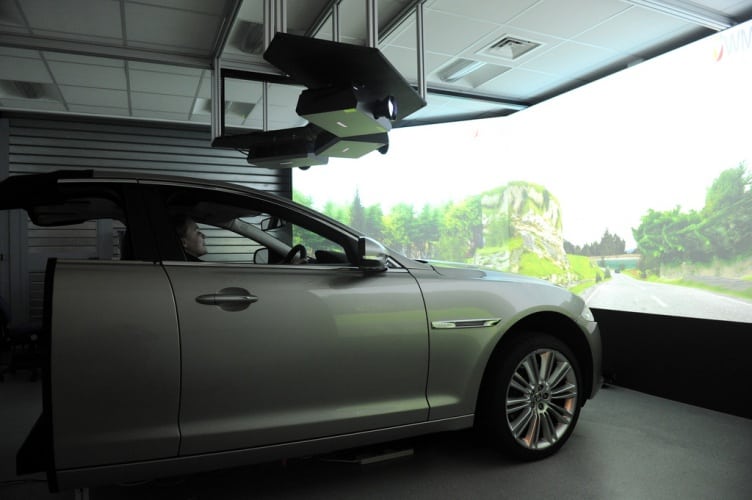WMG (formerly known as the Warwick Manufacturing group) has been awarded £3.2m by the Engineering and Physical Sciences Research Council (EPSRC), and £1m from industry to create what it claims will be one of the world’s most adaptable and advanced driving simulators.

The simulator, which will be available to a range of research groups, will use a LIDAR scan (essentially a high resolution laser scan of an environment) of 30 miles of real roads around the city of Coventry to test vehicles in the simulator.
While the simulator will use a fixed test car for many tests it will also be configured so that any make of car can be driven into the simulator for testing which is believed to be a unique capability for such an advanced simulator.
The simulator will be tested and piloted in WMG’s International Manufacturing Centre at Warwick University before moving to its final home in the National Automotive Innovation Centre (NAIC), a 33,000m2 research facility that is about to begin construction at Warwick University.
WMG researcher Prof Paul Jennings said that he anticipates the system being used to gain a better understanding the use of smart and connected vehicles.
Researchers in WMG’s Cyber Security Centre will also use the technology to research the cyber security of vehicles to ensure that our increasingly computerised cars have the maximum resilience and protection against the possibility of cyber attacks in the future.
Prof Carsten Maple, Professor of Cyber Systems Engineering at WMG’s Cyber Security Centre said: “Modern cars have more computing power and greater connectivity than ever before. Drivers rely on this technology far more than many realise. It is our aim to make vehicles as secure and trustworthy as possible, and this simulator will provide a unique opportunity to test both the vehicle and the human interaction with it. We have seen major advances in the safety of vehicles, and it is now vital we improve the security of these smart vehicles.”
The system will also be used by students embedded in JLR for a number of projects, including looking at the concept of “self-learning” cars, and how vehicles can be “tuned” to respond to the emotional state of the driver.




Project to investigate hybrid approach to titanium manufacturing
What is this a hybrid of? Superplastic forming tends to be performed slowly as otherwise the behaviour is the hot creep that typifies hot...